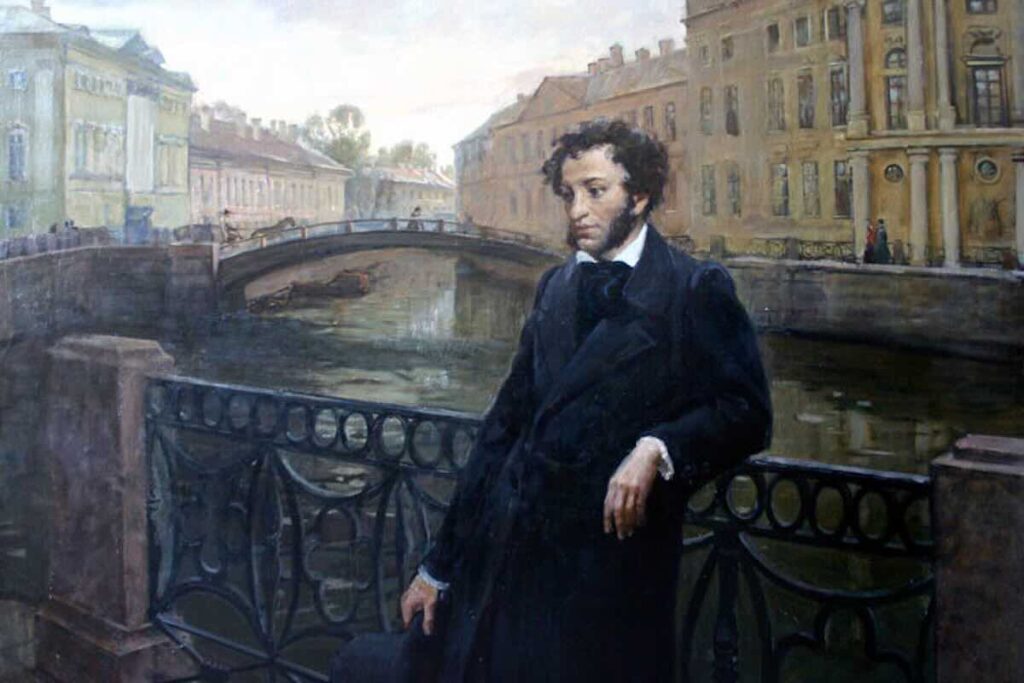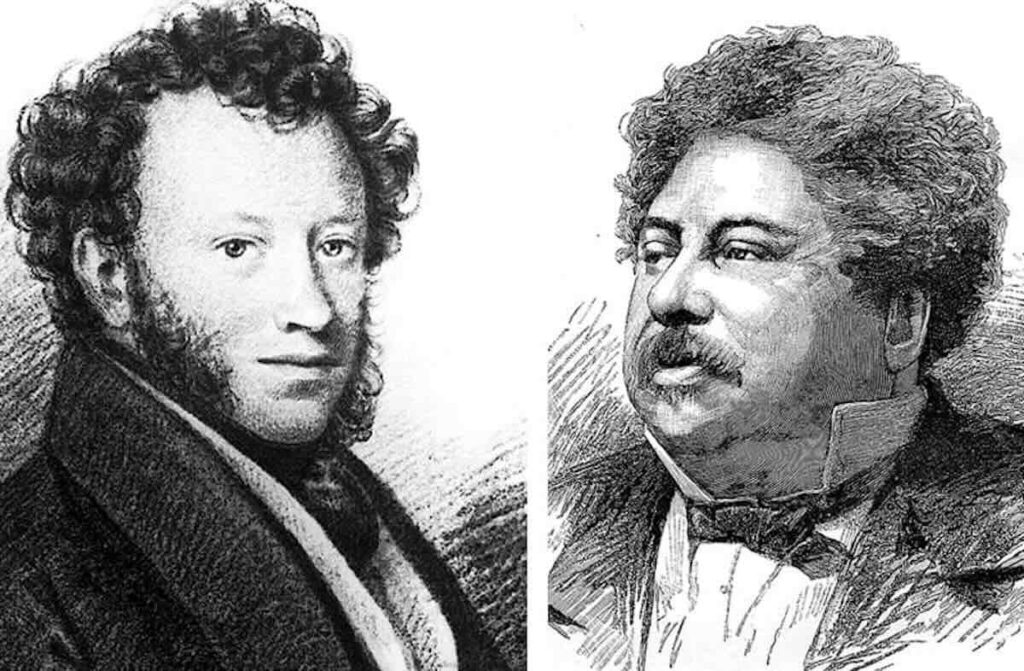You’ve probably heard the myth that Alexander Sergeyevich Pushkin didn’t die in a duel with Dantes. According to some theories, he fled to France and began writing under the pseudonym Alexandre Dumas.
There are several “proofs” cited in favor of this idea — from similarities in writing style to physical resemblance between the poets. But there are also strong arguments suggesting it’s simply a myth.
Let’s explore whether Pushkin could have really become Dumas — or if it’s just a fabrication.

The Pushkin-Dumas Conspiracy Theory
A few years ago, someone shared online a theory: Pushkin didn’t die in the duel but escaped to another country and lived under the surname Dumas. The internet being what it is, the theory quickly gained traction, with enthusiasts pointing to various “evidences.”
For starters, Alexandre Dumas’ rise to fame coincided almost exactly with the year of Pushkin’s death. Comparing portraits, some note a physical resemblance. Early daguerreotypes of Dumas in his later years show features that some claim match Pushkin’s.
Contemporary accounts add to the speculation: Dumas allegedly claimed his grandmother was African-American, while Pushkin had a black ancestor on his grandfather’s side. Some sources say Dumas confused this, claiming it was his grandfather instead.
Fans also point to Dumas’ works, such as The Fencing Master, published three years after Pushkin’s fatal duel.
The novel mentions Russia — an unusual topic for the time — and its protagonist was a real but obscure historical figure. To know such details, one would have to study Russia extensively… or be Russian.
Not everything supports this conspiracy. First, there were real people who knew Alexandre Dumas while Pushkin was still alive. Documented evidence exists of Dumas’ life and work. For instance, his notable novel Henry III and His Court was published in 1829, when Pushkin was very much alive.
Additionally, Pushkin was short — about 160 cm — while Dumas was tall. When Pushkin married Natalia Goncharova, Dumas was dealing with legal cases regarding an illegitimate child.
Over the years, professional forensic experts have examined the theory, analyzing facial and bodily features. Vladimir Sukharev, a forensic specialist, told KP.ru unequivocally: Pushkin was not Dumas.
Why “Double Poet” Theories Are So Popular
Humans are naturally drawn to alternative truths — hidden realities that “they” don’t want us to know. Conspiracy theories thrive on this curiosity. Online communities amplify these ideas, collecting “evidence” that persuades more people to believe.
This isn’t the only example. Some believe Shakespeare never existed, and that the works were written by a collective. Others speculate that Isaac Newton and Mikhail Lomonosov were the same person.
Humans seek conspiracies even where none exist — as a form of entertainment and exploration of alternate realities.
However, this doesn’t mean every theory is credible. Critical thinking is essential. Analyze the facts carefully, and you won’t fall prey to myths.






